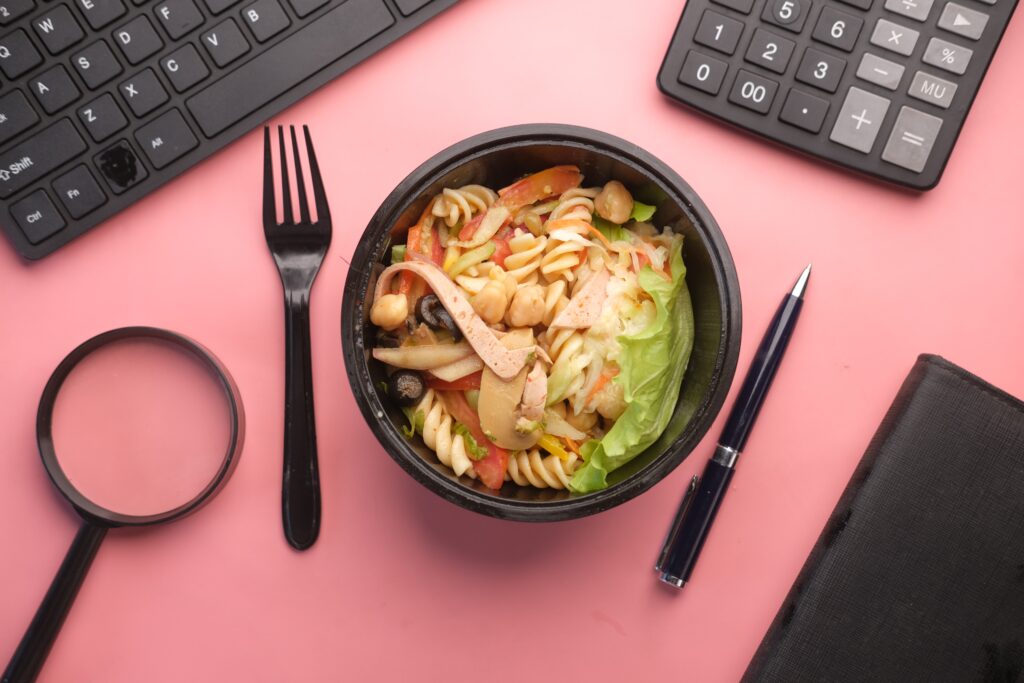
A calorie deficit is the main principle of weight loss. A diet that contains fewer calories than those burned over time results in fat loss.
Creating a weekly meal plan that creates a moderate daily calorie deficit will help you to achieve a lean body and lower body fat percentage.
It is also beneficial to exercise alongside a healthy eating plan. Weight training increases muscle gain and cardio workouts help you burn fat (even stubborn belly fat) adding to your calorie deficit.

Is 1200 calories a day a deficit?
You can of course, simply choose to eat a certain number of calories per day. There are eating plans out there that stick to 1200 calories a day or 1500 calories a day.
These eating plans are a relatively safe bet that most people will lose weight. These plans would place most people in some sort of calorie deficit.
The problem with these set calorie eating plans is that they may be set too low for you, leaving you hungry.
These plans may be unsustainable for some people who may require more calories each day.
How do I figure out my calorie deficit?
To lose weight, you want to consume fewer calories than you burn each day.
The first step is to figure out how many calories you use each day.
There is a handy calorie deficit calculator over here, to the right on a desktop


Or down at the bottom of the page on a mobile device.
Just pop your details in to get your daily energy expenditure and your calorie deficit for healthy weight loss.
What is the 500 calorie deficit?
There is a general concept that creating a calorie deficit of 500 calories per day will result in 1lb of fat loss per week.
There is some debate regarding the accuracy of this concept, but it has been widely accepted in predicting weight loss. You can find out more about the calculation here.
The 500 calorie deficit is a popular method for calculating a healthy weight loss plan. A 500-calorie deficit can work well for most people because it is a sustainable reduction in calories.
The 500 calorie deficit may not be suitable for everyone though.
An example of this would be a person who already has a low body fat percentage, seeking to lower their percentage a little more.
In this instance, the 500 calorie deficit could lower their calorie intake below 1000kcal a day.
The 500 calorie deficit could represent a large proportion of their daily energy intake. This could become unhealthy and result in a nutritionally deficient eating plan.
If you only have a small amount of fat left to lose, it is healthier to make your calorie deficit smaller. Find out how to lose the last ten pounds here: Weight loss plateau? How to lose the last 10 pounds
Those who have a significant amount of fat to lose may be able to comfortably create a larger calorie deficit at first.
Balance is key to the most effective weight loss
Dramatically cutting calories may seem like a fast fix.
If reducing your calorie intake results in weight loss, then a bigger reduction is better, right?
This is a misconception that can have the complete opposite effect.
Drastically reducing your calorie intake will cause you to stop losing weight over time.
This is because your body is efficient and when it senses a drop in energy, it will restrict your energy intake.
You will feel more lethargic as your body attempts to slow you down and your body will begin to neglect less important functions in an effort to preserve energy.
If you can hit the sweet spot by giving your body the energy and nutrients it needs whilst creating a calorie deficit, you will lose weight at a healthy pace.
**As an Amazon Associate I earn from qualifying purchases that are displayed on this site.**
Consider your nutrition when you calculate your calorie deficit.
The main principle of weight loss is to consume fewer calories than you use each day.
In terms of losing weight, it really does not matter what type of food you eat to achieve this.
You may choose to eat chocolate, candy, cakes, fries, or pizza. If you remain in a calorie deficit, you will lose weight.
The issue with this kind of eating goes beyond losing weight.
Eating this way is less nutritionally beneficial. It is also likely that you will be hungry most of the time, as these foods are calorie dense.
When you are creating a calorie deficit to lose weight, you want to feel fuller for longer and you want to get as many nutrients from your food as possible.
The best way to achieve this is to eat foods that are less calorie dense and more nutrient dense:
- Vegetables
- Lean protein, such as chicken, fish, soya, and eggs.
- Complex carbohydrates that are high in fiber such as whole grains.
- A moderate fruit intake
- A small intake of healthy fat, including low-fat dairy and plant-based oils.
These foods contain plenty of vitamins and minerals, and you can bulk your meals with high-fiber vegetables to help you feel fuller for longer.
Always be sure to check with your GP or health care professional before starting a new exercise or nutrition program and seek support from an exercise professional to ensure you are exercising correctly.
